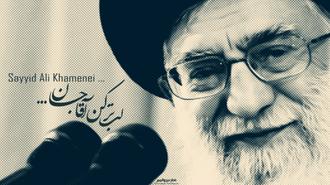Features of Imam mahdi’s Government
Revival of the Sunnah
Imam Mahdi is a divine figure who is on occultation and will reappear at the end times to establish justice in the world. He will establish a just government and will prepare the grounds for man’s perfection in all dimensions. There are many traditions (hadith) handed down both by Sunni and Shia scholars regarding his occultation and reappearance. According to many traditions the Imam will reappear at a time when the world is full of oppression and suppression. He will reappear to save the world from oppression and establish justice.
Also there are some traditions on the way of his governance. Some of the features of his government are discussed below.
Revival of the Holy Book and Sunnah of the Prophet (PBUH)
After his reappearance, Imam Mahdi (AJ) invites people who are sick of oppression, injustice and wickedness to embrace three principles of Unity, Prophecy and Imamate. According to the narrations, during his era, education will be developed at its most and all prophets and Imams’ instructions will be used to raise human beings and help them attain moral excellence.
As Imam Baqir (A.S) narrates: “during Imam Mahdi’s era, people will learn knowledge and wisdom to the extent that a housewife at home will be able to judge freely on the basis of the Holy Prophet’s acts and the Qur’an.” [1]
In addition, Imam Baqir (A.S) says: “He will invite people to stick to the Holy Qur’an, Prophet’s Sunnah and Imam Ali’s leadership and avoid the enemies.” [2]
As Imam Ali (A.S) says in sermon 138 (Nahj al-Balagha): “Upon Imam Mahdi’s reappearance, he will direct desires towards (the path of) guidance at a time when people have turned guidance towards desires, and he will draw their attention to the direction of the Qur’'an while the people try to interpret the Qur'an according to their own views. He also punishes all those agents who did evil for their wrongdoing. He will show you the just way of behavior and revive the Qur’an and Sunnah which are neglected by the people.” [3]
Translated by: Sadroddin Musawi
Endnote:
1.Ghaibat al- Na’mani , P. 238
2.Bahar al-Anvar, Vol. 51, P. 47
3.Nahj al-Balagha, Sermon 138.

